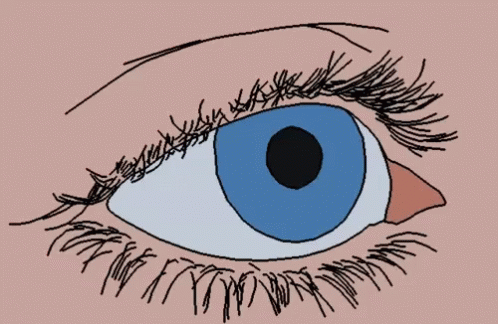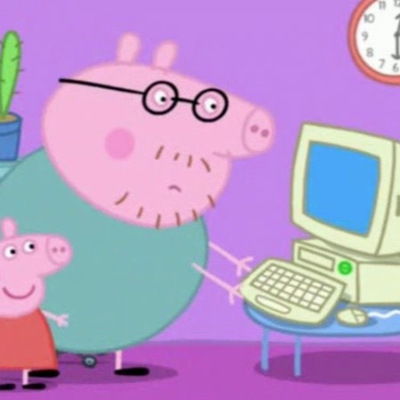edited to add tl;dr: Siskind seems ticked off because recent papers on the genetics of schizophrenia are increasingly pointing out that at current miniscule levels of prevalence, even with the commonly accepted 80% heritability, actually developing the disorder is all but impossible unless at least some of the environmental factors are also in play. This is understandably very worrisome, since it indicates that even high heritability issues might be solvable without immediately employing eugenics.
Also notable because I don’t think it’s very often that eugenics grievances breach the surface in such an obvious way in a public siskind post, including the claim that the whole thing is just HBD denialists spreading FUD:
People really hate the finding that most diseases are substantially (often primarily) genetic. There’s a whole toolbox that people in denial about this use to sow doubt. Usually it involves misunderstanding polygenicity/omnigenicity, or confusing GWAS’ current inability to detect a gene with the gene not existing. I hope most people are already wise to these tactics.
From the comments:
I am someone who takes great interest in scientific findings outside his own area of expertise.
I find it rather disheartening to discover that most of it is rather bunk, and

ChatGPT, write me up an example of a terminal case of engineers disease and post it to acx to see if they’ll catch on to it.
Some sociology in the comments
It’s good to bear in mind that there are important ways in which heredity influences environment: Kids who are physically attractive and above average at motor coordination are more liked by their peers. Physically attractive kids are perceived by teachers as smarter, and are favored. Kids who really are quite smart, even if not physically attractive, are seen as smart by teachers. Simple things like this have a big influence on how many smiling faces kids see in their early years, and that number’s a powerful feature of social environment.
God I hate these people so fucking much
heredity influences environment
smugly “well actually environmental factors are genetic too”
aaaaaaaaaAAAAAAAAAAAAAAAAAAAAAAAAAAAAAAAAAAAAAAAAAAAAAAAAAAAAAAAAAAA
I am not going to do more than quickly skim this, because Scott Alexander disgusts me, but
- one of the defining days in my life was when I discovered that twin studies don’t usually involve twins that were separated at birth like I naively assumed
- am I missing something / going mad or do even actual scientists routinely mistake “heritable” for “genetically transmittable”
I really would feel better if I’m just lost and the science is good actually.
Don’t know about the actual literature, but confusing heritability to mean ‘concrete chance to inherit’ instead of “broad measure of influence of unspecified genetic factors on a population wrt developing a condition, once environmental influences are modeled out according to our paper’s methodology” is extremely common in the wild even by people who should know better.
Siskind seems ticked off because recent papers on the genetics of schizophrenia are increasingly pointing out that at current miniscule levels of prevalence, even with the commonly accepted 80% heritability, actually developing the disorder is all but impossible unless at least some of the environmental factors are also in play, which is very worrisome since it indicates that even high heritability issues might be solvable without immediately employing eugenics.
I see now that my mistake as a very Bourdieu-pilled kind of person was to assume that “heritability” meant “traits that a population statistically inherits from their parents” instead of the narrower “traits that a population statistically inherits from their parents which we should assume are genetic if we close our eyes and pretend our model is adequate at filtering out environmental factors” in effect here.
I didn’t mean to sound too derisive, heritability is an actually useful metric as far as I can tell, it’s just not as intuitive or monosemantic as a lot people will make it out to be, especially in the absence of significant correlating DNA evidence.
Siskind strawmans this into the alleged opposition desperately claiming that “it’s not genetic unless there’s a specific gene you can point to”, aka the bitches dont know bout my poly/omnigenic traits argument.
Right, I don’t think even classical twin studies are entirely meaningless, but when they’re made out to say something specific about actual genetics there does seem to be a habit of severely underestimating possible environmental factor.
You don’t even have to believe in sociology. As quoted in the post Scott helpfully links to at the end of his diatribe: “It starts in the womb: while fraternal twin embryos are always connected to their mother via two unique placentas, identical twins most often (but not always) share a single placenta. This means that, beginning soon after conception, identical twins typically have more similar access to nutrients, oxygen, and other factors than do fraternal twins” (Moore and Shenk, 2017)
“we should assume are X if we pretend our model is adequate at filtering out interfering factors” is basically the best you can do in science.
The devil lies in the actual adequacy of the filters.
Also notable because I don’t think it’s very often that eugenics grievances breach the surface in such an obvious way in a public siskind post
This one comes to mind.. Like EY’s recent endeavor it’s written as a roleplay so as to be nigh-unreadable by anyone without extreme tolerance for not getting to the fucking point.
Galton Ehrlich Buck
The concentrated smarm in this bullshit JAQ off piece gave me psychic damage.
Fun to see him using the “IQ is mostly genetic [because heredity]” line, which is exactly what the schizophrenia literature he takes issue with claims is a woefully inadequate descriptor if we’re going to usefully evaluate what is actually happening.
The way they always try to motte and bailey eugenics gives me the shits. No, eugenics isn’t screening embryos for terrible incurable conditions, it’s the whole deal of gatekeeping society according to arbitrary geneological norms, and the fact that they keep trying to rehabilitate the term instead of rebranding to something less awful, is certainly food for thought.
The great philosophical dialogues in English - those by Berkeley, Hume, Lakatos - are few and far between. Perhaps there is a general awareness that only these exceptional stylists could pull off the rare trick of not obviously putting words into their antagonist’s mouths, even insofar as the author clearly took the view of his protagonist. Indeed there is still, two and a half centuries later, debate about whose view in his own dialogue Hume actually took - when the rather obvious and straightforward alternative was just writing down “this is what I fucking think, alright?” that aporetic flourish was precisely what justified writing it down in dialogue form in the first place.
Jesus that is some absolutely vile sophistry even coming from Dr. Scott Siskind, psychiatry, San Francisco, CA.
It’s pretty blatant isn’t it? It’s pretty creepy how he doesn’t even shed a crocodile tear for the schizophrenics the nazis murdered.
Are “Beroe” and “Adraste” placeholder names or are they calling back to some other work? My memory of Socratic dialogs through the ages is rusty.
@gerikson “Adraste wishes to send a private message to Beroe, but suspects that Erebus is intercepting their scrolls…”
deleted by creator
It’s both, probably. Sounds like the Alice and Bob of compsci security parable fame, except pretentious, and Mallory is the writer.
@gerikson @Evinceo An obscure French opera from the early 1700s. Google tells me that this is an Alexander quirk.
Act III
Adraste proclaims his determination to raise all other gods against Jupiter. He calls upon Juno, Jupiter’s wife, to join him in avenging Jupiter’s unfaithfulness. Juno sends Adraste away so that she can plot her revenge. She takes on a disguise as Beroe, Semele’s nurse, to enact her jealous hatred of Semele, made even stronger when she sees Semele’s beauty.
Playdoh statistics is right jfc.
Scott if he was 100 IQ points better at using maths: https://youtu.be/msDuNZyYAIQ?si=tTkbGsDgCgZNTXk0
Emil Kirkegaard of all fucking people shows up in the comments to call him out on misunderstanding variance.
to anyone else that’d be a big oof but to scott, it is tuesday
I wonder if Scott is the person who stood up during Michael Levin’s talk on (non genetic) bio-electric circuits storing morphological memory across time and said, “those animals can’t exist!”
Just like neuroscientists try to read out and decode the memories inside a living brain, we can now read and write (a little bit…) the anatomical goals and memories of the collective intelligence of morphogenesis. The first time I presented this at a conference – genetically wild-type worms with a drastically different, rewritten, permanent, target morphology – someone stood up and said that this was impossible and “those animals can’t exist”. Here’s a video taken by Junji Morokuma, of them hanging out.
This is fascinating.
I was hoping someone more knowledgeable on the subject might have chimed in to provide some context by now, like are bioelectric circuits legit or is this sheldrake all over again, and why can’t I find anything on the very interesting phenomenon of deer antlers maintaining acquired deformities between fall off and growth cycles, and apparently trophic memory is an hapax legomenon to your linked article according to google.
Feel free to ask Michael in the comments of his blog, he frequently replies, helpfully, with references. I mean all science is tentative, so skepticism is healthy.
Also seems relevant
Like in the deer, the large-scale target morphology can be revised – the pattern memory re-written – by transient physiological experience. The genetics sets the hardware with a default pattern outcome, but like any good cognitive system, it has a re-writable memory that learns from experience.
or confusing GWAS’ current inability to detect a gene with the gene not existing
This remarkable sleight of hand sticks out. The argument from the (or rather this particular) GWAS camp goes “we are detecting the genes, contrary to expectations”. There isn’t any positive assumption in favour of that camp, so failure to thus far detect the gene is supposed to motivate against its existence.










